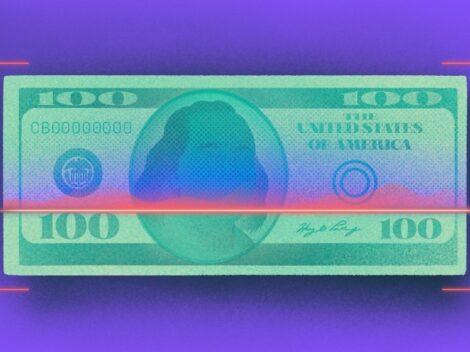What goes up must come down?
Not always, but that’s certainly the case for stock prices of the companies that saw the financial upside of the pandemic.
Once called the “pandemic winners,” some companies have seen their share prices slide this year, with the likes of Zoom, Peloton, Moderna and Roku all down more than 20 percent so far. That’s part of an underlying shift of investors looking for profits rather than growth potential.
Search less. Close more.
Grow your revenue with all-in-one prospecting solutions powered by the leader in private-company data.
“There’s a really big recalibration going on in terms of risk and returns and valuation, and I think it’s a good thing,” said Josef Schuster, founder of IPOX Schuster, which provides financial services related to new listings.
For the pandemic darlings like Zoom and Peloton that saw their stock price skyrocket—thanks to social distancing and the work-from-home environment—their performance this year is the result of both the COVID-19 situation changing, and investors shifting away from growth stories, according to Schuster.
Zoom, Peloton, Moderna, and DocuSign were among the Nasdaq 100’s best-performing stocks of 2020, according to MarketWatch. As long as those companies are trading, they’re going to be under a lot of pressure to produce “really, really strong results,” Schuster said.
When some of those companies, such as Peloton, went public, the popular mindset was that a company could go public with 20x sales as long as it had a growth story, Schuster said. Now, those same companies are under pressure to record strong results and will see their stock price decline if they don’t beat analyst expectations well enough, he said.
Schuster pointed to DocuSign as an example. The e-signing company, which benefited from the pandemic-induced reliance on e-signatures, saw its stock price take a hit last month after it reported fourth-quarter guidance that didn’t live up to analyst estimates.
Peloton’s stock price also fell after CNBC reported that the company was pausing production on its bike after demand waned.
The macroeconomic environment hasn’t helped either. The most recent couple of weeks have been wild for the market, with the S&P 500 closing down for the fourth straight week. Part of that’s been driven by inflation concerns, and even big names like Tesla and Netflix have seen their stock prices negatively affected. With the prospect of interesting rate hikes looming, the market is pricing that in, according to Patrick Healey, founder of Caliber Financial Partners. The equity markets tend to exaggerate both the upside and the downside, he said.
Many growth stocks got overheated last year, and now we’re seeing an overcorrection to the downside. And it was inevitable, given how high some stocks were trading, Healey said.
“I think some of the highflyers that were trading at really insane price to earnings multiples have gotten beaten down, and they should’ve,” Healey said.
But with “pandemic fatigue,” many investors have moved away from the “stay at home” type companies that saw their share price skyrocket in 2020 and 2021.
“I think people are not focused on the ‘stay at home trade,’ if you will, because I think that was largely market-sentiment based rather than fundamentals-based,” Healey said
Illustration: Dom Guzman

Stay up to date with recent funding rounds, acquisitions, and more with the Crunchbase Daily.



![Illustration of toast with IPO toasted in. [Dom Guzman]](https://news.crunchbase.com/wp-content/uploads/Forecast-IPO-470x352.jpg)

![Illustration of toast with Dev toasted in. [Dom Guzman]](https://news.crunchbase.com/wp-content/uploads/Forecast-dev-470x352.jpg)





67.1K Followers